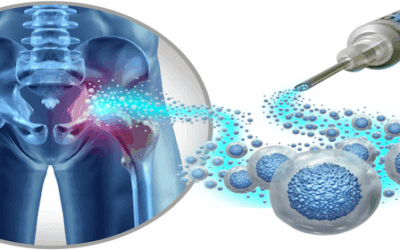Stemedix Regenerative Medicine Research and Health Awareness Blog
Stay up to date with the latest developments in regenerative medicine research and treatment. Subscribe to our newsletter.
Safety and Effectiveness of Orthobiologic Injections for Chronic Low Back Pain
Chronic low back pain is a widespread issue, affecting over 600 million people globally. It is a leading cause of disability, with significant social and economic consequences. In the United States alone, nearly 27 million adults experience back problems, with...
Post-Workout Recovery Tips to Prevent Long-Term Injury
Pushing your body during a workout feels great, until soreness turns into something more serious. Whether you're training for strength, endurance, or general fitness, recovery is just as important as the workout itself. Ignoring it doesn't just lead to burnout; it can...
Mesenchymal Stem Cells and Spinal Cord Injury: A Promising Path to Recovery
Spinal cord injury (SCI) is a devastating condition that causes severe nerve damage, leading to impaired movement, sensation, and bodily functions. The injury sets off a series of damaging processes, including excessive inflammation, loss of essential nutrients, and...
Exploring the Promise of Neural Stem Cells in Treating Neurological Diseases
Neurological diseases such as Parkinson’s disease, Alzheimer’s disease, Huntington’s disease, and ALS (amyotrophic lateral sclerosis) affect millions of people around the world. These conditions often develop slowly and progressively damage the brain and spinal cord,...
Stem Cell Therapy for MS: Breaking Down the Potential Benefits and Limitations
Multiple sclerosis (MS) is a complex and unpredictable disease that affects the central nervous system, leading to a variety of symptoms. Identifying the early warning signs of multiple sclerosis is very important for seeking prompt treatment and potentially slowing...
From Injury to Recovery: How the Body Regenerates Itself
The human body is an incredible self-healing machine. Every time you scrape your knee, strain a muscle, or even undergo surgery, a remarkable process begins, one where your body works tirelessly to repair and regenerate itself. While most people focus on the pain or...
The Role of Immune Modulation in Regenerative Medicine for Multiple Sclerosis
Immune modulation plays a key role in regenerative medicine for multiple sclerosis (MS). At Stemedix, we focus on restoring immune balance to help reduce symptoms and slow disease progression. Regenerative medicine treatments, including stem cell therapies, target...
Advancements in Mesenchymal Stem Cell Applications for Traumatic Spinal Cord Injury: A Systematic Clinical Review
Spinal cord injury (SCI) can lead to lasting health challenges, impacting motor, sensory, and autonomic functions. Recovery from such injuries is particularly difficult due to the central nervous system's limited ability to repair itself. As a result, scientists have...
Links Between Sex Hormone Ratios and Metabolic Syndrome and Inflammation in U.S. Adult Men and Women
Metabolic syndrome (MS) is a group of conditions that occur together, raising the risk for cardiovascular disease (CVD) in men and women and is associated with a number of diseases including sleep apnea, liver disease, polycystic ovary syndrome (PCOS), and...
Collagen: What It Is, What It Does, and How to Boost It Naturally
Collagen is often mentioned in skincare and wellness circles, but it’s far more than just a beauty buzzword. As the most abundant protein in the human body, collagen plays a vital role in maintaining the strength, elasticity, and structure of your skin, joints, bones,...
Exploring the Healing Potential of Umbilical Cord Stem Cells for Early-Stage Osteonecrosis of the Femoral Head
Osteonecrosis of the femoral head (ONFH) is a serious condition that affects the hip joint, leading to bone damage and joint problems. The disease occurs when the blood supply to the femoral head (the top part of the thigh bone) is disrupted, leading to small...
Exosome-Facilitated Spinal Cord Injury Repair: Advancing a Therapeutic Modality
A spinal cord injury (SCI) is a serious condition that affects the central nervous system, leading to loss of movement, sensation, and bodily functions below the site of the injury. SCI is not only life-changing for those...













 St. Petersburg, Florida
St. Petersburg, Florida
